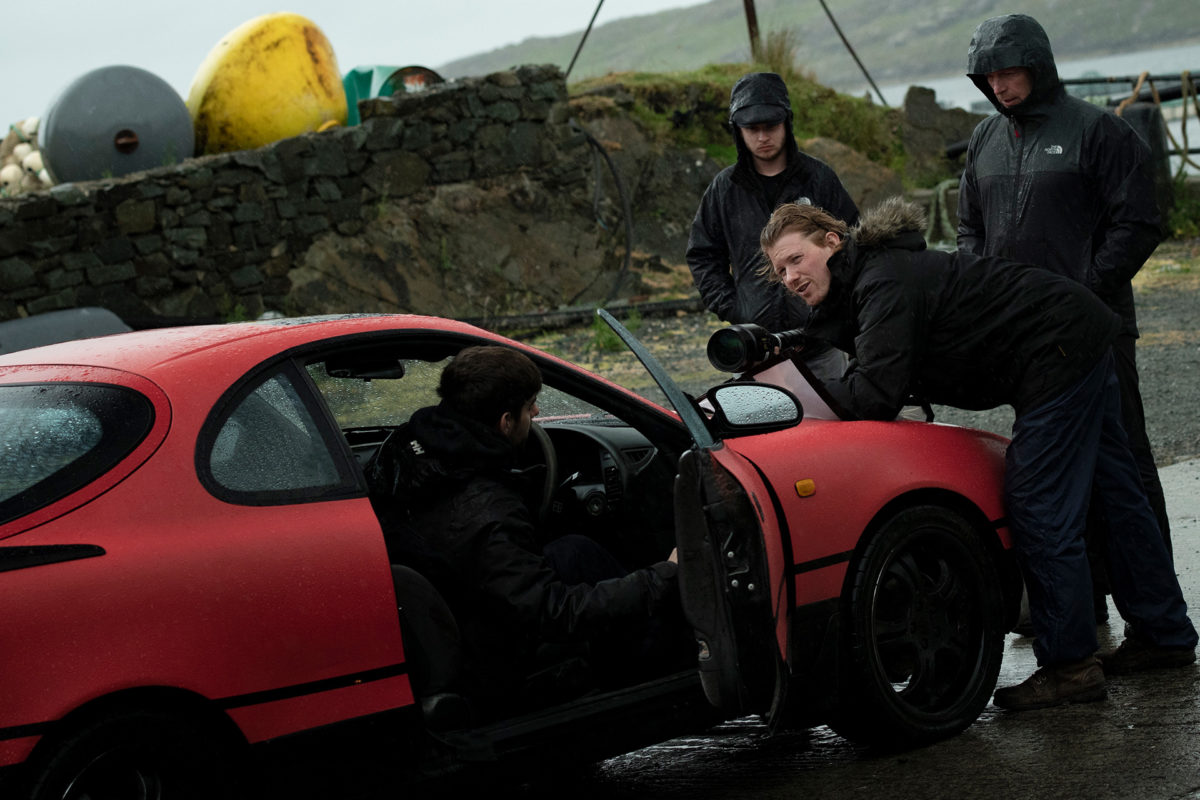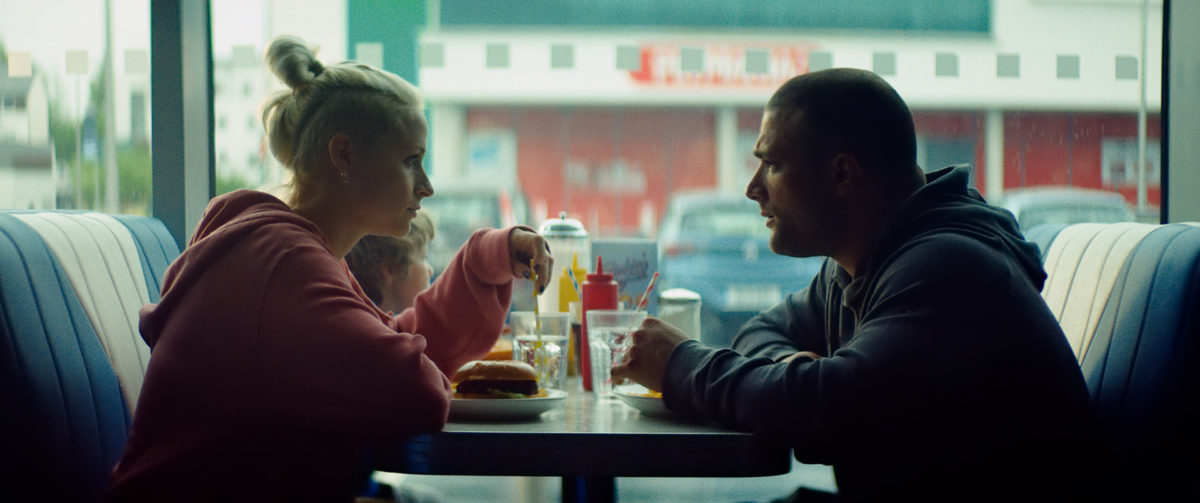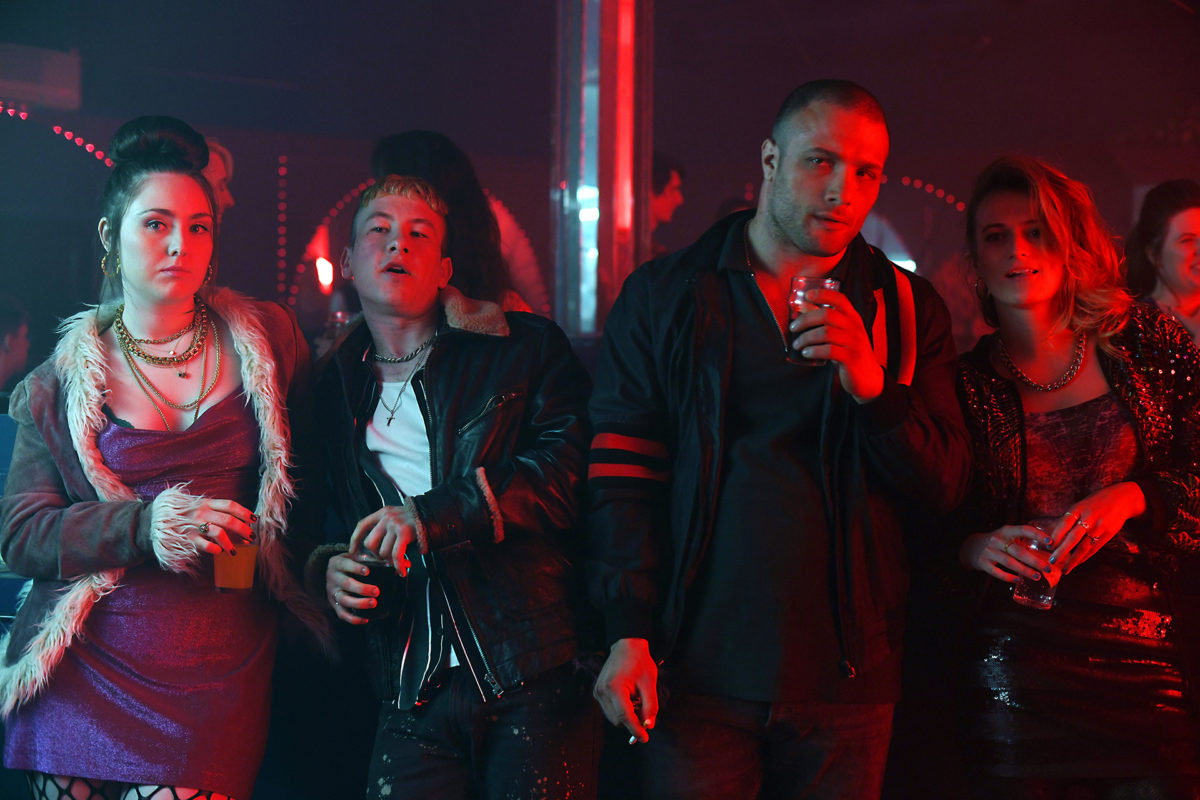One of my favorite films from last year’s Toronto International Film Festival, The Shadow of Violence (renamed from its UK release title Calm with Horses) has finally arrived stateside. A critical darling with enough momentum for Saban Films to reward it with an exclusive theatrical window despite the COVID-19 shutdown, you have to wonder if it might find its way to the eyes of Oscar voters looking for screeners now that the field is wide open with rule changes and postponements.
If nothing else they need to watch it to make certain that star Cosmo Jarvis’ performance isn’t left out of the conversation. A career-making turn just a couple years after being introduced internationally in Lady Macbeth, the US-born Englishman provides Arm the complexity and pathos to earn our empathy from the first frame.
The following is our email conversation with Jarvis about his process, acting partners, and a character that wears his heart and pain on his sleeve.
The Film Stage: How did your casting in The Shadow of Violence come about? And what attracted you to the project whether Colin Barrett’s original short story, Joe Murtagh’s script, Nick Rowland’s vision as a first-time feature director?
Cosmo Jarvis: Shaheen Baig, the casting director, had cast me before in a movie called Lady Macbeth, but, just in general, she’s always working on interesting stuff. I remember reading the script and admiring the character of the language Joe used and his dedication to honoring the feel of the place and its inhabitants.
I’ve met Arms [his character]. I remember looking forward to whittling away at Arm and being excited that a character like him had been written [along with] the archetypal nature of the story. Also Nick was my age and so was the producer Dan Emmerson and it really felt, even in the early days, like this could be something interesting. It felt like a mission that would be great to be on. Nick’s attention to emotion, his care for his actors and love for the story was clear in the audition room. I got a callback and then did another and … yeah.

You packed on muscle and adopted what your cast-mates call a pitch-perfect Irish accent, but what was your mental process like digging into an emotionally and psychologically complex character such as Arm with all the trauma he’s experienced and carries upon his shoulders?
Mentally, I found it to be a case of minimizing future projections and past reflections and just sort of trying to get on with things in their immediacy with very little thought put anywhere other than what was happening. I knew there was a reason why Arm wasn’t able to see what seemed to be happening to him—despite the shouts from his beloved around him. I tried to reside in that head.
How did shooting on location in the west of Ireland help shape the character especially considering you were an Englishman within an Irish cast?
I learned a great deal whilst researching there. There’s nowhere like Ireland. I interacted with as many Irish people as I could and just generally lived. There is a kind of character alive in Ireland’s people and a musicality that is just unique. It was great having so many people to talk to in the crew and in the towns where we shot.
Yours is a year-best performance for me that’s so heartbreaking to watch as a whole, but the scenes you share with Niamh Algar as your ex-girlfriend Ursula really stick out because they allow—as her character says—for Douglas to peak through Arm’s façade. How was it working with her to construct their affectingly tragic shared history?
Amazing. Naimh is some force breathing stark, unfiltered, brutal life and logic into everything and every crack in the space around her. We spent a lot of time together before shooting to establish a feeling of the history between them. We sort of had a bunch of good, easy times as Ursula and Arm would certainly have had to form that familiarity and the comfort they have with each other. Drinking beers and chatting shite by the lake. Just being human, etc.

What was it like shooting that final telephone call with her in a long take focused solely on your emotional reaction in saying congratulations and goodbye? The simultaneous show of pride in her accomplishment, hope in your family’s future, and anguish in knowing you won’t be with them is unforgettable.
Ursula (Naimh) was in the same room with us delivering her performance with Arm off camera, which was brilliant and kept it real. Our crew was amazing and everyone was just ace. As usual Nick was at the helm observing and gently guiding the proceedings. I dunno what to say, really. When I first read the script that scene had stuck with me, I felt I understood it. Great crew we had in that room.
One could say you are the Ursula to Barry Keoghan’s Dympna—the single real(ish) relationship he has beyond the true nightmares that are his uncles. What was it like toeing that line between friendship and subservience with his character, knowing compassion still exists beneath the obvious utility? Juggling loyalty against humanity and morality?
With regard to this matter—I learned a great deal about Arm from the script [and] his interactions with Dympna. The sort of person Arm would have to be to keep going forward with Dympna as he does. I concluded that Arm just doesn’t consider the flavors of hierarchy in Dympna’s actions to be anything alarming. Arm just sees Dympna, this amazing confident character, as someone who’s willing to associate with him. A friend. That wonderful unhinged friend we all have or perhaps are.
I’ve met many groups of people who consider themselves friends with each other, but one party clearly has more interest to plan or maintain the structure of the group’s activities and momentum than the other party—eventually leading the other party, by default, to end up just going along with flow of activity. This “utility” (good choice of word by the way) can sometimes only be observed and acknowledged from an outside party. It is possible for the accused propagator of this arguably one-sided arrangement to be subjectively and sincerely innocent in his/her influence on the other party because they themselves truly have no wider context. The other party has no objections.

Dympna’s mum makes Dypmna and Arm’s and Hector’s breakfast. Dympna does the talking. Arm does the threatening. It’s like if I’m the friend who brings the beer and you’re the friend who’s house we’re at: No big deal. So if Dympna was raised in this cycle of the Devers’ family model and Glenbeigh (the setting) was small in size—if Arm had been with the Devers for some time, I thought his friendship with Dympna, warts and all, would be the only friendship with Dympna that Arm could know. A spade with cracked wood along its shaft and rust on its blade is still a spade.
What’s your opinion on the title change for America from Calm with Horses to The Shadow of Violence? There seems to be such a huge disparity between the optimism and hope of the former as it deals with your character’s son and the potential for healing and the nihilism of the latter as an all-consuming darkness Arm will never be able to escape.
I remember refusing to watch This Is Spinal Tap for many years because the title, just the words, conveyed the sentiment of badly lit horror movies with blood that is way too light red from the early 80s. I admit that was my own precursory illusion. When I [finally] watched Spinal Tap, I fell in love with it and the title seamlessly morphed into the only true reflection of the movie’s sentiment that I could imagine henceforth. In the end, however, I am aware that I am working in an “industry.” I know certain territories may react better, commercially, to certain stimuli or language, but in catering to this, or our idea of this, do we hijack everyone’s ability to adapt?
The Shadow of Violence is currently in limited theatrical release.
